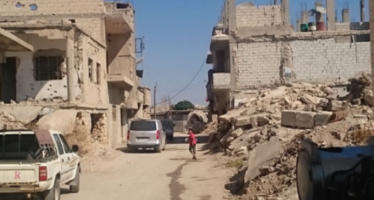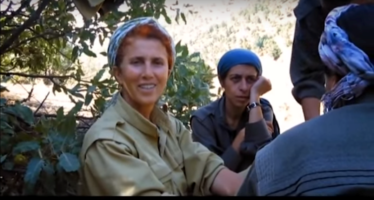CHP report signals change in approach to Kurdish issue
![]()
CHP report signals change in approach to Kurdish issue
ERCAN YAVUZ

Kemal K?l?çdaro?lu
A draft report on Turkey’s Kurdish issue still being worked on by the Republican People’s Party (CHP) is a sign of change inside the main opposition party vis-à-vis the deep-seated problem, but it also indicates that the party will not live up to the promises its leader, Kemal K?l?çdaro?lu, made while campaigning in the run-up to the Sept. 12 referendum on a constitutional amendment package.
Today’s Zaman has learned that the content of the report, as it currently stands, contains certain proposals that may be interpreted as the CHP trying to approach the Kurdish issue differently.
These proposals are about a constitutional amendment on the definition of citizenship and public administration reform to empower local administrations against the central government. K?l?çdaro?lu assigned Deputy Chairmen Haluk Koç and Umut Oran as well as Ankara deputy Tekin Bilgin and Central Executive Board (MYK) members Mahmut Duyan and Mehmet Faraç to review and update two earlier reports the CHP prepared. Since July, the CHP delegation has to that end been working and meeting with various NGOs in 25 provinces in the predominantly Kurdish East and Southeast.
The CHP has already drafted two reports, one in 1999 and the other in 2001, in which it thoroughly analyzed the Kurdish issue. Today’s Zaman has learned that the latest report, which will be an updated version of the former two, will not include a proposal for general amnesty for all terror suspects, contrary to K?l?çdaro?lu’s pledge to the contrary if the CHP forms the government, nor a proposal to allow Turkey’s citizens of various ethnicities to seek education for their kids in their mother tongue.
In its latest report on the Kurdish issue, the CHP finds that a divide has emerged between people in Turkey along the east-west axis because of the decades-long problem in the region, but that it should primarily be cured through the use of public policies that embrace all. Though it fails to acknowledge the right to being educated in one’s mother tongue, the report calls for the lifting of all obstacles before people’s freedom to learn and use their native language, a problem completely solved in Turkey thanks to accession negotiations with the European Union in theory.
What the CHP is arguing is that practice should also reflect the law. The CHP report also includes a proposal on how to make changes to a repentance law Turkey put in force a number of times in the past because, it says, the word “repentance” is “offensive.” It suggests that the state should use more embracive terminology to convince terrorist Kurdistan Workers’ Party (PKK) members to hand over their weapons. According to past repentance laws, a PKK member will not be charged with engaging in acts of terrorism after turning himself in if he has not been involved in any violent PKK operations.
The CHP is aiming to raise the number of its votes in the eastern and southeastern regions, where it has traditionally been one of the least popular political parties. The party currently only has three deputies representing the 25 provinces its delegation worked in for its latest report on the Kurdish issue. These 25 provinces are represented by 74 seats in Parliament.
One of the NGOs the CHP delegation consulted is the Association of Human Rights and Solidarity for Oppressed Peoples (MAZLUM-DER), an organization the political group chose to stay away from so far for ideological reasons. Speaking about their meeting with CHP officials, MAZLUM-DER President Ahmet Faruk Ünsal told Today’s Zaman that, despite signs of change, the party is unable to develop a pro-freedom approach to the issue, underscoring that it has difficulties distancing itself from its traditional statist stance.
Ünsal added that promises made by CHP leader K?l?çdaro?lu while speaking to crowds in the run-up to the Sept. 12 referendum did not meet a receptive audience inside the party. “His remarks on the Kurdish and headscarf issues are not felt within the CHP. The party is now distant to offers for a solution to the headscarf issue that differ with the state’s official ideology,” he said in a phone interview with Today’s Zaman on Monday.
His impression is thus that it is less likely for the party to live up to K?l?çdaro?lu’s groundbreaking proposals and come up with a solution offer other than the one it has defended for many years. However, even the party’s decision to meet with MAZLUM-DER is being interpreted as a big step of change for the CHP in Ankara’s political circles.
Related Articles
The Struggle for Kobanê – A Future for Kurds?
![]()
This week in September marks the 6th (since September 2014) anniversary of the Islamic State/Daesh’s advance on and siege of the Kurdish city of Kobanê
Letter from jailed mayor of Derik
![]()
Ça?lar Demirel calls on people to stay united and stand up for their rights We publish the letter from Ça?lar
Interview with the Free Women’s Movement (TJA) in North Kurdistan
![]()
After the Syrian Kurds’ fight for Kobane against ISIS in 2014-5, many across the world were suddenly made aware of the Kurdish women’s movement




